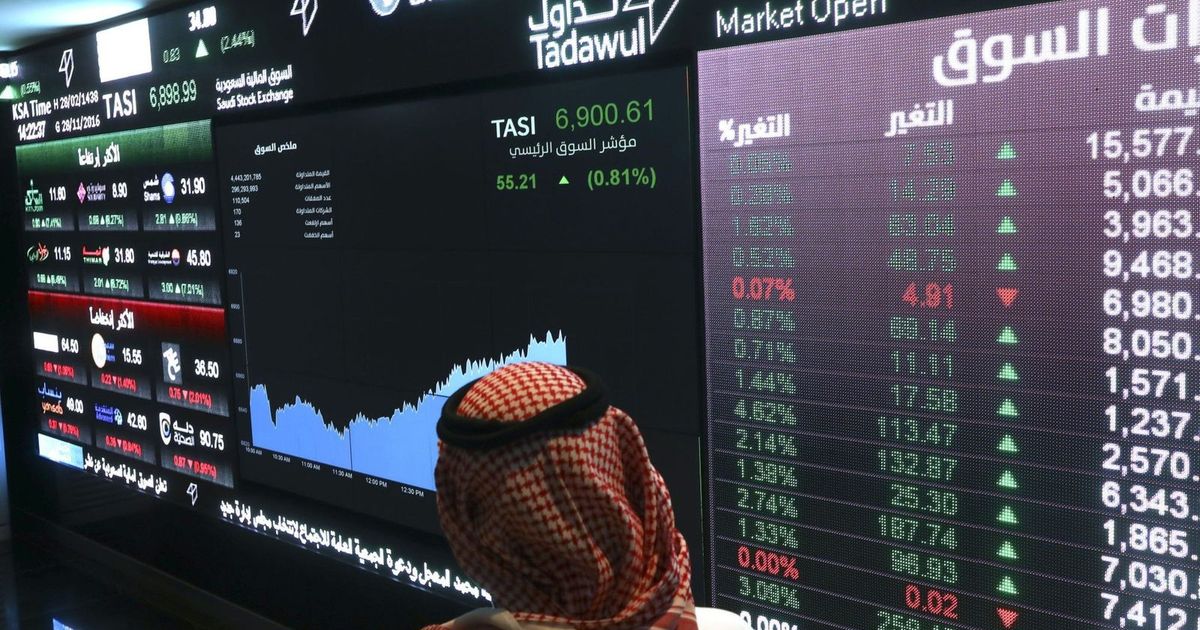The General Index of the Saudi Stock Market continued its decline in the second consecutive session at the beginning of today’s trading, Sunday, and the rest of the indicators of the financial markets in the Gulf amid a wave of sharp losses in the US financial markets taken by the entry of US dead duties. The “Tassi” index was more than 6%with the opening of the session, scoring 11167 points, which led to the decline in the wave markets, amid the decline in all leadership shares, as the arrow of “Al -Rajhi Bank” lost 6%, “5%,” Sabic “4%and” Saudi Telecom “4%. Its biggest daily losses since 2020, as the first Kuwait Market Index and the Qatar Stock Exchange Index fell by more than 5% for each of them, while the Muscat Stock Exchange fell by 2.3% and Bahrain fell about 0.5%. Worldwide goods and money markets remind us of the days of Corona, “and adds that the psychological psychology of the clients is weak and this is evident from the decline in circulation. The decline today “is normal after what we saw in the market during the weekend because of US Customs duties and the Chinese reaction, in addition to the drop in oil prices,” according to Al -Khalidi. A sharp drop in the Markets The S&B 500 index fell by about 6% at the end of Friday’s trading amid a sharp selling wave that exacerbated the Nasdaq 100 index (Nasdaq 100) to exceed 20% since the mid -February, after China’s retardation on the large -scale customs. Oil prices folded to their lowest levels in four years with the decline of the Western Texas -Tussentage futures, about 14% in just two days – which near the $ 61 per barrel equal to the sharp losses they entered into during the epidemic – while the brittle of the brittle ended at the lowest level. Poor demand raw materials. The price of copper fell by 67.7% to reach its lowest level since January, while futures for reference to natural gas in Europe at one time fell by more than 10%. Trump announced a set of customs tariffs on Wednesday depending on “customs duties imposed on the United States”, while “reduced mutual definitions” were imposed at half the tariff imposed on US goods. The US Customs Definitions announced this week will increase the fees on almost all Chinese products to at least 54%, which could hinder the country’s exports to the United States. On the other hand, China has promised fixed measures to defend its economy by placing 34% customs definitions on all imports from the United States from April 10. Beijing authorities have announced several other procedures, including the imposition of immediate restrictions on the export of seven types of rare minerals. Al -khalidi believes that “the defense sectors that depend on the local market, such as communication, media and cement, will see less pressure in the coming period, and this could be the first sectors in the refusal process.” The wave states are subject to the minimum fees of Trump, the imposition of a minimum of 10% of customs duties on all countries exported to the United States, including the Gulf States, announced. While additional fees were set between 30% and 41% on six main countries, including China, Japan and European countries, the market raised concerns about the future of the global trading system. Observers believe that the potential effects of Trump’s commercial policy will not only impose fees, but can expand to include universal supply chains and an increase in raw material prices, which means that the effect will be short -lived and not excluded from any country.
Saudi Arabia leads the declines of Gulf stock markets amid a global sale wave
